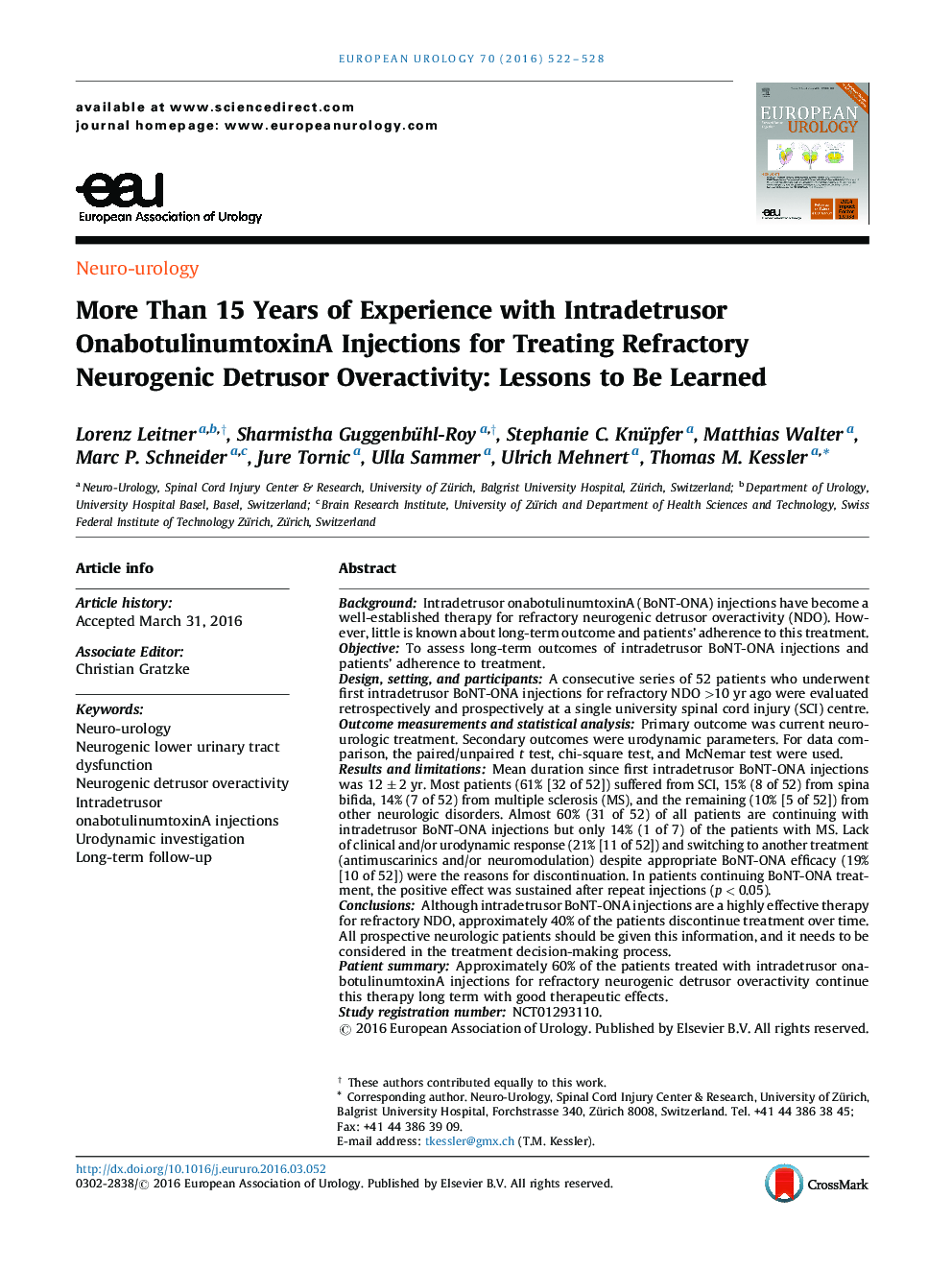| Article ID | Journal | Published Year | Pages | File Type |
|---|---|---|---|---|
| 6177152 | European Urology | 2016 | 7 Pages |
BackgroundIntradetrusor onabotulinumtoxinA (BoNT-ONA) injections have become a well-established therapy for refractory neurogenic detrusor overactivity (NDO). However, little is known about long-term outcome and patients' adherence to this treatment.ObjectiveTo assess long-term outcomes of intradetrusor BoNT-ONA injections and patients' adherence to treatment.Design, setting, and participantsA consecutive series of 52 patients who underwent first intradetrusor BoNT-ONA injections for refractory NDO >10 yr ago were evaluated retrospectively and prospectively at a single university spinal cord injury (SCI) centre.Outcome measurements and statistical analysisPrimary outcome was current neuro-urologic treatment. Secondary outcomes were urodynamic parameters. For data comparison, the paired/unpaired t test, chi-square test, and McNemar test were used.Results and limitationsMean duration since first intradetrusor BoNT-ONA injections was 12 ± 2 yr. Most patients (61% [32 of 52]) suffered from SCI, 15% (8 of 52) from spina bifida, 14% (7 of 52) from multiple sclerosis (MS), and the remaining (10% [5 of 52]) from other neurologic disorders. Almost 60% (31 of 52) of all patients are continuing with intradetrusor BoNT-ONA injections but only 14% (1 of 7) of the patients with MS. Lack of clinical and/or urodynamic response (21% [11 of 52]) and switching to another treatment (antimuscarinics and/or neuromodulation) despite appropriate BoNT-ONA efficacy (19% [10 of 52]) were the reasons for discontinuation. In patients continuing BoNT-ONA treatment, the positive effect was sustained after repeat injections (p < 0.05).ConclusionsAlthough intradetrusor BoNT-ONA injections are a highly effective therapy for refractory NDO, approximately 40% of the patients discontinue treatment over time. All prospective neurologic patients should be given this information, and it needs to be considered in the treatment decision-making process.Patient summaryApproximately 60% of the patients treated with intradetrusor onabotulinumtoxinA injections for refractory neurogenic detrusor overactivity continue this therapy long term with good therapeutic effects.Study registration numberNCT01293110.
